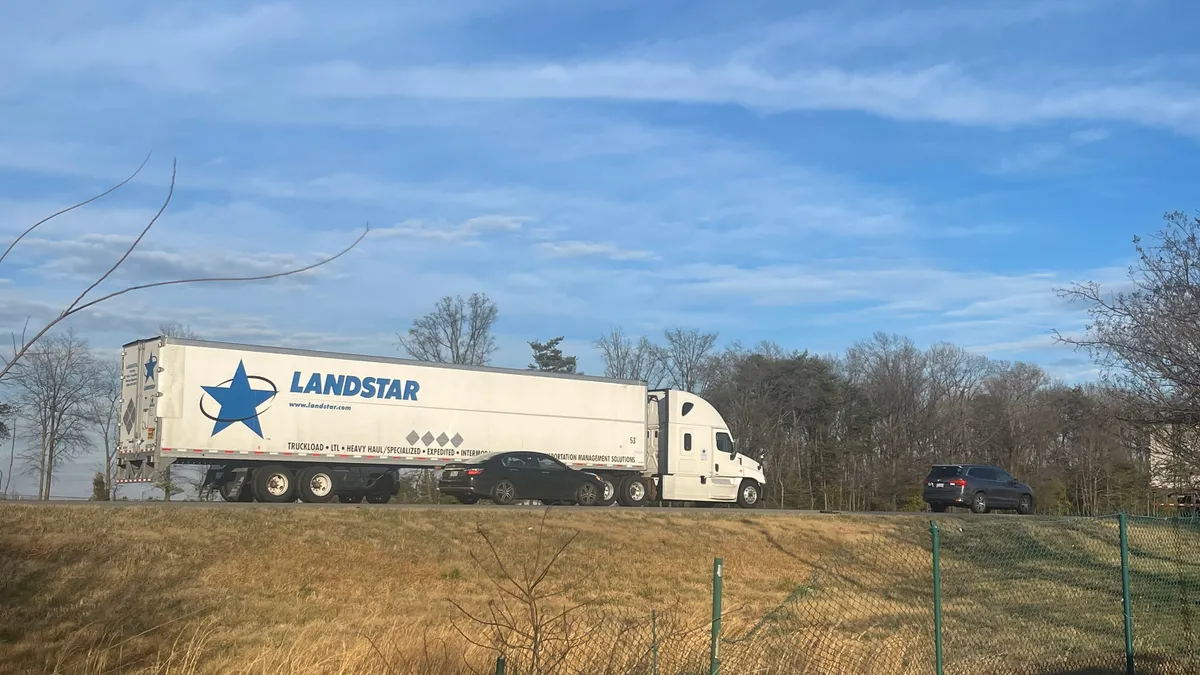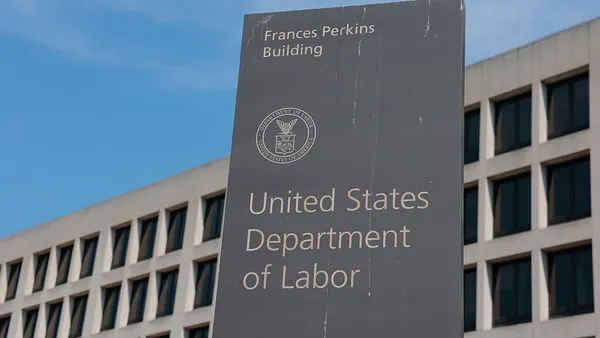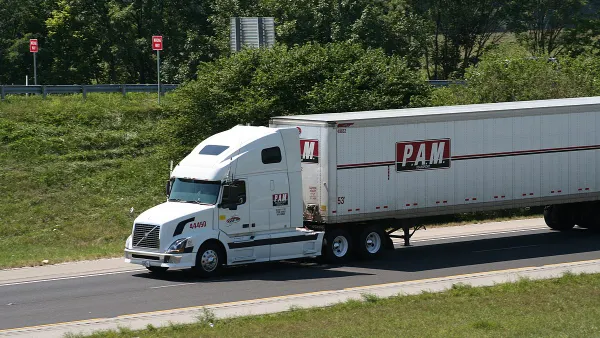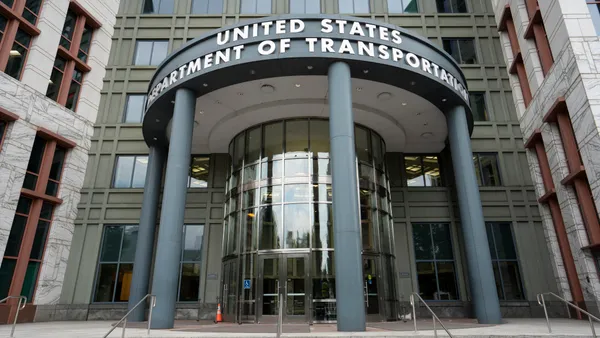Dive Brief:
- Landstar System’s owner-operator truck count dropped 12% year-over-year in Q3, as high operating costs and low rates persisted, President and CEO Frank Lonegro said on an earnings call Wednesday.
- The number of owner-operator trucks leased onto Landstar slid by 153 from the previous quarter to 9,027, amid a significant increase in truck repair costs and lengthy waits for repairs, he said.
- The carrier expects a continued decline in Q4 “given the challenging operating environment faced by many owner-operators at a pace somewhat similar to the pace experienced during the third quarter,” Lonegro said.
Landstar owner-operator count dips for 10 straight quarters
Dive Insight:
A drop in capacity is typical in a low-rate environment, and owner-operator counts have decreased at Landstar for 10 consecutive quarters.
Owner-operators face record costs to operate and a two-year freight recession that — despite some glimmers of hope — likely won’t subside before the end of the year.
The fourth quarter is often slower for adding new owner-operators, Lonegro said, and Landstar isn’t anticipating typical seasonal improvement into the holidays that might help draw them back.
“If we get a 5% bump in rates, are we going to see folks come back?” Lonegro said. “Heck yeah, we are.”
“Assuming it's stable and sustainable,” he added. “That's the one thing that we have seen throughout this year, and even in this quarter on a month-to-month basis: You get a couple of good weeks and then a couple of tough weeks. So sustainability in that rate environment is going to be really important.”
Whenever rates do begin to increase sustainably, drivers could take longer to return to their trucks than in the pandemic freight boom, TD Cowen analysts Jason Seidl, Elliot Alper and Uday Khanapurkar said in an investor note Wednesday.
“We would estimate the inflection would likely be at a slower pace vs last up-cycle (COVID) and will depend on 1) operating costs 2) cost of borrowing and 3) TL rate environment (all of which were very favorable during COVID),” the analysts wrote.













